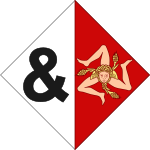Anastasia
| Anastasia Etzeterra | |
 | |
| Senator of the Lakes | |
|---|---|
 | |
| Tenure began | 1.I.1720 AN (23 AN years) |
| Senatorial positions | First Secretary of State (1728–1734) |
| Senate(s) | XI, XII, XIII |
| Elected | 1718 (2nd alt member, 1718–1720, full member 1720– ) |
| Faction | United Ayreonist–Traditionalist List |
| Order of the Holy Lakes | Line of Octavius (by marriage) |
| Physical description | |
| Gender | Female |
| Species | Human |
| Race | Akhidian |
| Hair colour and style | Red |
| Eye colour | Blue |
| Skin colour | White |
| Biographical information | |
| Father | Leksande Goturgli |
| Mother | Zora Uzerli |
| Spouse(s) |
|
| Children |
|
| Date of birth | 1674 AN (aged 69) |
| Place of birth | Zezo-Goturg |
Anastasia Etzeterra, also known as Anastasia of Akhidia, Anastasia of Zezo-Goturg, mononymously as Anastasia, and in the Hurmu tabloids as Mrs Mondo, is the Kaiseress-consort of Etzeland, empress-consort of Greater Sangun, queen consort of Riskai and former queen consort of Akhidia. A member of the Senate of the Lakes since 1.I.1720 AN, she was elected First Secretary of State on 3.VI.1728 AN, thereby becoming the chief executive of the Realms held in right by the Order of the Holy Lakes. She held the position until 1.III.1734, when Tsatse Vaykok succeeded her.
Early Life and first marriage
Born in Zezo-Goturg in 1674 AN, Anastasia was the daughter of the local governor, Leksande (or Alexander) Gortugli and his wife Zora (née Uzerli). A noted local beauty, as a young woman she came to the attention of the Akhidian king Ytro I and soon became his constant companion, accompanying the hard-partying monarch on his increasingly-outrageous escapades. Anastasia's public reputation came to suffer as a consequence, with many conservative Akhidians blaming her for the king's excesses; this assessment has more recently been challenged by several historians, who have argued that far from encouraging Ytro, Anastasia tried unsuccessfully to moderate his behaviour.
Although Ytro married Anastasia in 1699 AN, thereby making her queen consort of Akhidia, it was clear that the king's lifestyle had severely harmed his health. As Ytro's health progressively declined, Anastasia's own position became increasingly insecure, and on her husband's death from cirrhosis three years later, she was unable to secure the succession for her stepson, Prince Şahangökbaharx, who was passed over in favour of Prince Edward. Shortly afterwards, Edward compelled Anastasia to leave the country.
Exile and second marriage
Following her banishment, Anastasia travelled to Riskai in an attempt to secure the support of its new king, Mondo Etzeterra, who also ruled territories adjoining Akhidia on Cibola. Although disappointed to learn that Mondo did not reside in Riskai, Anastasia nevertheless offered herself in marriage to the absentee king, in return for his assistance in her feud with Prince Edward. Mondo and Anastasia were duly married by proxy on 11.X.1702 AN, making her Queen of Riskai and Duchess (subsequently Grand Duchess) of Etzeland.
The triumph of Anastasia's marital coup was soon tempered by the shock of meeting her new husband for the first time. Having expected a pliable human king, she instead found herself married to a powerful and eccentric lich, obsessed with cake and unfathomable technology. The realisation of her miscalculation was compounded by the unexpected birth of a daughter, Lystasia, on 19.II.1703 AN; although she had always desired children of her own, Anastasia found herself utterly unprepared to be a mother to her frighteningly-precocious necromechanical offspring. Despite this unpromising start, she quickly adapted to her new life, successfully building strong relationships with her husband, child and adopted countries.
Akhidia and Hurmu
King Edward's disappearance on 20.IX.1706 AN gave Anastasia an opportunity to take revenge upon her political enemies in Akhidia. Having persuaded her husband to intervene, the resulting conflict saw Akhidia partitioned among the rival claimants to the throne: the populous south-east, with both the new capital, New Paris, and her home city of Zezo-Goturg, was secured as the Kingdom of South Akhidia, under the rule of her stepson, Şahan I. Anastasia was herself to briefly become queen of South Akhidia following the abdication of Şahan I on 9.V.1716 AN, subsequently orchestrating the kingdom's incorporation within the newly-proclaimed Empire of Etzeland on 1.VI.1716 AN.
A member of the Order of the Holy Lakes through her marriage to Mondo, she also began to take a more active role in Hurmu following her nomination to the Senate of the Lakes on 1.I.1720 AN. On 3.VI.1728 AN, she succeeded Ghawetkiin Enkhjargal as First Secretary of State.
Titles, honours and heraldry
Titles and styles
- 1699-1702: Her Majesty The Queen of Akhidia
- 1702-11.X.1702: Her Majesty The Queen Dowager of Akhidia
- 11.X.1702-12.XIII.1702: Her Majesty The Queen of Riskai, Duchess of Etzeland
- 12.XIII.1702-1707 Her Majesty The Queen of Riskai, Grand Duchess of Etzeland
- 1707-9.V.1716: Her Majesty The Queen of Riskai, Grand Duchess of Etzeland, Duchess of Ceyazir, Princess of Goturg
- 9.V.1716-1.VI.1716: Her Majesty The Queen of Riskai and South Akhidia, Grand Duchess of Etzeland, Duchess of Ceyazir, Princess of Goturg
- 1.VI.1716-1.I.1722: Her Imperial & Royal Jolliness The Kaiseress of Etzeland, Queen of Riskai, Duchess of Rossheim and Artesia, Duchess of Ceyazir, Princess of Northbloom, Princess of Goturg, Viscountess Ermingander, Baroness Mondo of Lichport and of Zijincheng
- 1.I.1722-present: Her Imperial & Royal Jolliness The Kaiseress of Etzeland, Empress of Greater Sangun, Queen of Riskai, Duchess of Rossheim and Artesia, Duchess of Ceyazir, Princess of Northbloom, Princess of Goturg, Viscountess Ermingander, Baroness Mondo of Lichport and of Zijincheng
Honors and Awards
 : Lady of the Holy Lakes (1702 AN)
: Lady of the Holy Lakes (1702 AN) : Dame of the Order of the Golden Skull (1702 AN)
: Dame of the Order of the Golden Skull (1702 AN) : Dame of the Order of Saint Lazarus (1702 AN)
: Dame of the Order of Saint Lazarus (1702 AN) : Dame of the Order of the Vengeful Ghost (1722 AN)
: Dame of the Order of the Vengeful Ghost (1722 AN) : Dame Grand Cross of the Order of the Royal Blood (1722 AN)
: Dame Grand Cross of the Order of the Royal Blood (1722 AN) : Dame Grand Cross of the Order of the Woven Crown (1727 AN)
: Dame Grand Cross of the Order of the Woven Crown (1727 AN)
| Preceded by: Ghawetkiin Enkhjargal |
First Secretary of State of Hurmu 1728–1734 |
Succeeded by Tsatse Vaykok |